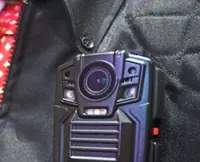Researchers focused on training deep learning algorithms to detect errors when a clinician transfers a drug from a vial into a syringe. — AFP Relaxnews
In order to prevent the wrong drugs being injected into patients, US researchers have designed a small smart camera that can alert doctors in the event of a drug administration error.
Researchers at Carnegie Mellon University in Pittsburgh and the University of Washington in Seattle have developed the first ever wearable camera that uses artificial intelligence to help prevent medication administration errors in hospitals. The aim of the device is to automatically detect drug administration errors in real time, before injection, so that clinicians are alerted to the mix-up and have time to intervene before the patient is put at risk.
According to the researchers, the error rate for all drugs administered in a hospital varies from one establishment to another, from 5 to 10%. To remedy this problem, which can have serious consequences, they designed an AI-enabled wearable camera system based on algorithms that analyse the labels of drugs selected by doctors in the aim of detecting errors when a clinician transfers a drug from a vial into a syringe. This may involve the wrong choice of vial, or the exchange of syringes, for example. Observation is made all the more difficult by the fact that these items fit in the hand, and their labels can easily be obscured during handling.
To develop their deep learning model, the researchers collected images using a small camera attached to the foreheads of doctors as they prepared their injections. Over a period of 55 days, they collected a multitude of video sequences from 13 anesthetists and 17 operating rooms in two hospitals. Tested on a total of 418 drug draw events observed in routine patient care and a controlled environment, the system was able to detect vial swap errors with a sensitivity of 99.6% and a specificity of 98.8%.
Now that they have demonstrated the accuracy of their system, the next step will be to integrate their camera into glasses that can instantly provide visual or auditory warnings to clinicians before they administer the wrong medication to a patient.
The researchers'study is published in the journal npj Digital Médicine. Every year in the United States, more than a million patients suffer adverse reactions related to drugs they have been injected with. – AFP Relaxnews





